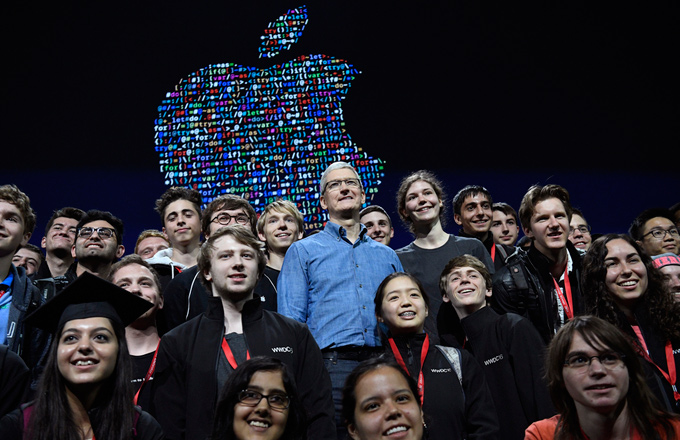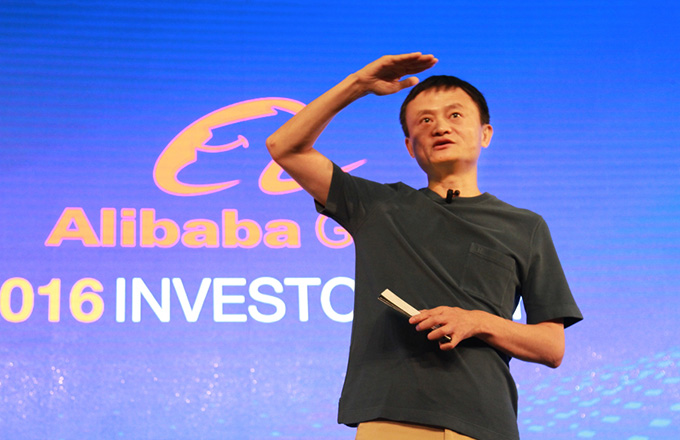Coming to a screen near you
|
Inside story The small fry Ling Yun, part-time independent app developer. We offer services to solve technical problems that others find difficult to deal with, often concerning Flash Player and similar programs. Usually, PC programming projects are easier to handle, and app development can be undertaken using the same principles. Four core team members deal with apps problems on a part-time basis. They all work for IT companies as their day jobs. Some of them work for companies such as Baidu and Wanmei, one of China's biggest online game websites that started trading on the NASDAQ Global Select Market in 2009. In our spare time, we work together to develop apps. We helped to develop yoursingapore.com, the official website for Singapore travel, which was a relatively easy task. We could easily produce a game app such as Angry Birds within a month. However, we don't receive as many orders as we would like and so we can't quit our day jobs and become really independent. The big fish Jim Lee is general manager and publisher at EA Mobile China. Because mobile gaming is a mainstream entertainment, many of the characteristics of mainstream entertainment apply. First, brands matter. Thousands of movies are made each year in Hollywood, but only a handful of blockbusters take the lion's share of the box office. Second, quality matters: No matter what platform you are looking at, once the novelty wears off, the high-quality games stand out. Naturally, Games is a different media (to movies) and has its own idiosyncrasies. One of them is being interactive. So the business model really matters. Making a game is difficult, but making a brand is truly difficult. Many Chinese gamers grow up with brands such as The Sims and Need for Speed. They love those brands. Many Chinese developers are at the cutting edge of business model innovation and we respect them for that. But by marrying brand, quality and learning from Chinese developers on business model innovation, I believe EA is in a unique position to be successful in this market. We value our customers' loyalty greatly. Our next game will be free-to-play and customers will find many Chinese elements there that will delight them. Ling Yun and Jim Lee spoke to Zhang Yuchen. |
Theoretically, that means that every future download should see Zhang make a profit, but he considers his first product a failure, partly because he didn't raise awareness of the product through marketing and promotional activities.
"More indies are coming to the market. Although that may result in an unprecedented number of new products, there will be many failures and few developers will make it in the end," he said. That's sobering news for the estimated 6,000 indie app companies on the Chinese mainland, for whom generating a single, rudimentary game app usually requires the involvement of four to 10 IT engineers, over a period of three to six months.
One notable challenge facing all game development companies is that Chinese consumers are notoriously reluctant to pay for downloads, preferring to use free products instead.
And although independent developers are making great strides in terms of innovation, many web game developers are also entering the arena.
Wesley Bao is the co-founder of Coconut Island Studio, established in 2009 in Shanghai just one year after Apple allowed independent developers access to the iTunes app store.
Initially, Bao was Coconut Island's sole employee, having ploughed 200,000 yuan of his savings into the idea. However, a partner later came on the scene and the company now has a staff of four.
Since its inception, several of Coconut Island's apps have gained top ranking on the iTunes app store's weekly most-downloaded lists. For example, iDragpaper topped the European and US download charts in the first week it was available.
Having worked for a number of foreign-based Web game companies, Bao decided to develop his own ideas for games applications. Registering the company after the name his wife uses on her personal blog, Bao formulated a clear business plan, based in part on the vagaries of the Chinese market.
For example, because Chinese consumers are reluctant to pay for apps, Coconut Island's pay products, such as iDragpaper and Mister Frog, are only available overseas. However, all the apps the company makes available through the Chinese iTunes store are free, and half of Coconut Island's global revenue comes from selling advertising space at the bottom of the interface of free-to-play apps.
However, most games only remain fashionable for around six months. "We always keep in mind ways of improving the playing experience to intrigue players and keep them coming back for more," said Bao.
Big fish, small pool
Because game companies can't survive on ad revenues for very long, many adopt a second revenue stream, called In-App Purchasing, a practice that has existed almost as long as Internet games have been available.
When customers download one of these apps free of charge, they are only allowed access to a number of basic levels, not the full game. The companies hope that the limited access will get players hooked on the game and they will be happy to pay for access to the higher levels, or for tips, hints and other information.
It's really only when gamers begin to pay for in-app purchases that the smaller developers finally begin to make money from their creations.
The free-to-play/in-game purchasing model has now been adopted by a number of international companies as they seek to introduce their products to the mobile market. The practice is especially popular with so-called console players whose games are usually better known on static platforms, such as Nintendo's Wii or Sony's Playstation.
"We are seeing some very interesting trends in mobile gaming. The smartphone is now well and truly in the hands of mainstream consumers," said Jim Lee, general manager and publisher of the games company EA Mobile China. More than 80 percent of the phones sold in the Chinese market now are smartphones.
"We are learning about a lot of local developers. They have created or perfected many innovations and we will continue to marry these with what we do best; big brands and blockbuster quality. I believe this will be a winning formula."
As bigger fish come into the pool, it's becoming increasingly difficult for local developers to benefit from their products. Giants such as Electronic Arts, the parent of EA Mobile China, and Unisoft Corp, a leading game company from France, are already well known and enjoy strong customer loyalty. That's not the case with independent Chinese developers, who have to work hard to make their products much more visible.
In response, some Chinese developers pay Internet users to post positive comments about their products online as a way to raise the profile and boost the rankings on games' lists. Usually, however, it costs 5,000 yuan to hire a group of "Zombies", as they are known, for a day, a price few smaller developers can afford.
Despite the presence of large and small game app developers and the huge size of the Chinese market, Wesley Bao believes the promised land is still far away. "The Chinese market is just as complicated as ever. While I see plenty of opportunities, I also see plenty of risks."
Contact the writer at zhangyuchen@chinadaily.com.cn.
- Telecom giants challenged by smartphone messaging apps
- Passengers, cabbies hail mobile taxi apps
- Tencent to boost development of WeChat app
- Mobile apps chip away at SMS
- Sky's the limit for mobile app company
- Mobile Market China's largest App store
- Life? There's an app for that
- 'Insidious' apps pose threat to smartphones
- Mobile app shops' USP war























